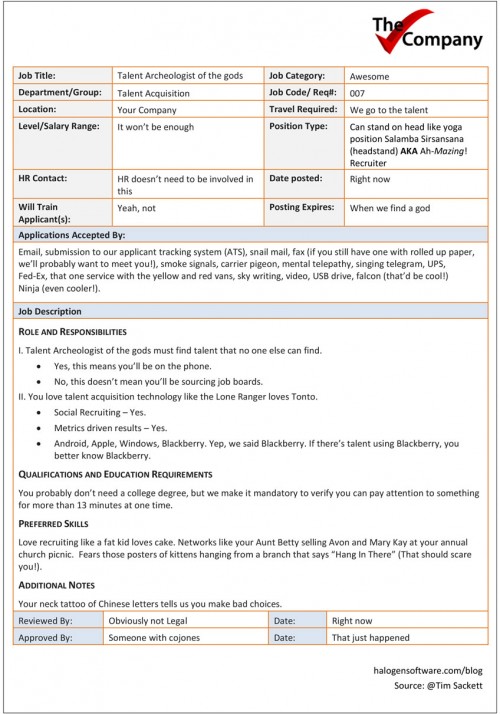I work in a world of resumes, where resumes equal solid quality candidates. I recently met with a client who needed ‘more resumes’, they didn’t have enough quality candidates. Seems like a simple equation, I just go back to the office and crank up the Resumatic 2000 and BAM, you’ve got ‘more’ resumes. But those in recruiting know, it’s never that simple.
I started digging into what was really going on, because the fact is, you only need 1 resume to fill a position.
My line of questions in order:
Are you not getting any resumes? Well, you see we have a very involved process. It’s hard for resumes to get through this process.
Oh, so you have a ‘too many’ resume problem, so you set up many filters to get just those that fit your need best? Not exactly. We have one process for all positions. Some positions we have too many resumes, some positions we don’t have any resumes coming through.
Why don’t you change your process for those positions you’re not getting resumes? We can’t. It’s illegal. EEOC.
It’s not illegal to change your process based on need and position. It’s illegal to discriminate against candidates. (that wasn’t really a question, but I couldn’t help myself from saying it!) Well, our “EEOC Lady” (exact quote) won’t allow us to change the process.
What does the hiring manager think? He loves the process! He created it.
How many positions do you have open? 70.
He likes having 70 positions open? Doesn’t that cause a business issue? He just wants us to get more resumes, but keep the process the same.
You see there really isn’t an issue with getting more resumes. The problem is, is when you already have enough resumes but you put barriers in place that cause those resumes not to be enough. You have enough resumes, more resumes isn’t going to solve your problem. Your process is the problem. Your filters are the problem. Me giving you more resumes isn’t going to help you, it’s just going to cause a bigger problem.
But that’s what they did. Just go get more staffing vendors to work with. If ten can’t get us ‘enough’ resumes, get twenty. Twenty isn’t working, let’s try 75. Still not good? Why not one thousand!? It won’t matter, you still have a you problem. You are unwilling to change. More isn’t going to help. You have enough. You need to fix you. You don’t have a resume problem, you have a ‘You Problem’. That is actually harder to fix!

